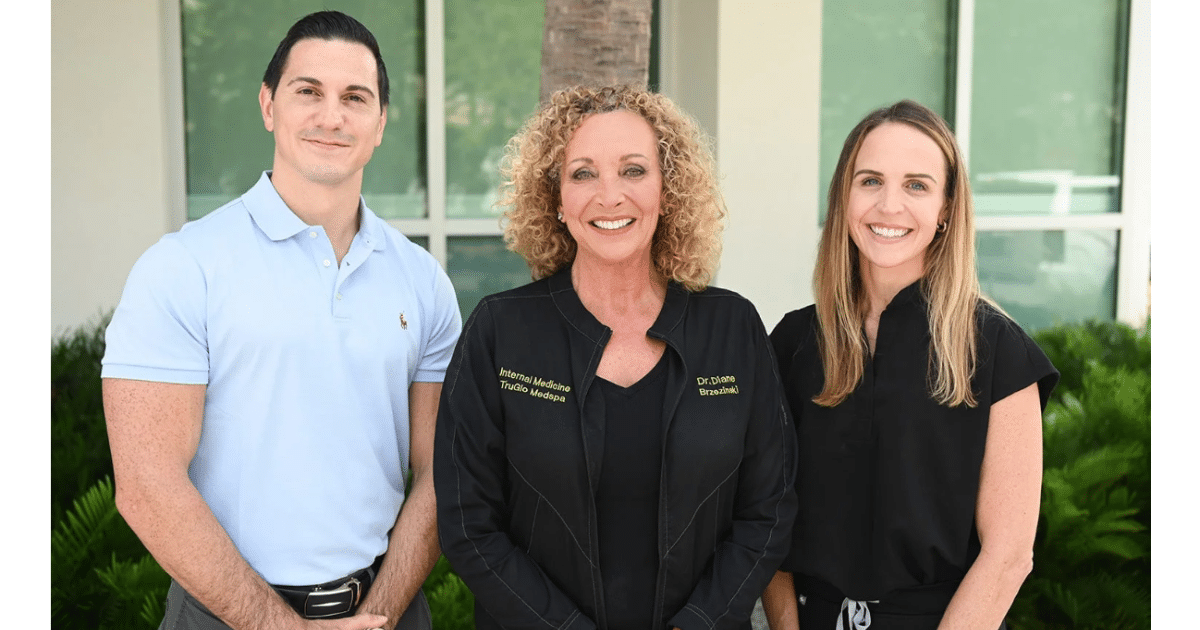
Most people know that the “M.D.” that follows the names of many doctors represents the Doctor of Medicine degree the physician earned to become a doctor. But what does it mean when a doctor’s name is followed instead by “D.O.?” For example, our own Naples, Florida physician Dr. Diane Brzezinski, D.O.
Simply put, the D.O. stands for a Doctor of Osteopathic Medicine degree. The difference between it and M.D. is that while M.D.s are primarily trained to treat specific conditions, D.O.s are trained to focus on whole-body wellness. Both degrees indicate that the physician has received extensive training and met strict requirements needed to become licensed. Much of this training is similar- for instance D.O.s and M.D.s complete the same residency and fellowship training. However, D.O. candidates tend to receive more training in holistic therapies and preventive medicine. They also have to complete an additional 200 hours of coursework focused on bones, muscles, and nerves and their intersection with overall health.
M.D. and D.O. Designations Represent Different Philosophies
M.D.s are trained under the allopathic philosophy of medicine, while D.O.s are trained under the osteopathic philosophy. Also known as “modern medicine,” allopathic medicine focuses on using medications to treat specific illnesses or conditions uncovered by diagnostic testing and/or imaging. Osteopathic medicine students learn the same diagnostic and treatment tools and procedures as M.D.s, but with the focus on the whole bodily system rather than specific disease or condition. D.O.s also study osteopathic manual medicine, which uses a hands-on approach for diagnoses and treatment.
Licensing is equally stringent for both degrees, and board certification is very similar as well. M.D.s must pass the United States Licensing Examination, while D.O.s must pass the Comprehensive Medical Licensing Examination. The two exams cover the same medical issues, but phrase questions differently according to their respective medical philosophies.
How to Choose Between an M.D. or D.O.
Because each type of physician is trained and qualified to provide medical services, either is capable of offering you the standard health care you seek. That said, if you prefer a physician that takes a more holistic approach to health care, and is open to alternative therapy options, you’re more likely to find one if they have a D.O. Some M.D.s also practice holistic treatments and are willing to try alternative therapies, but D.O.s were specifically trained in this.
Finding a D.O. might be a bit of a challenge because only about 10% of U.S. doctors are D.O.s. However, the number of D.O.s is climbing as more medical students have been seeking D.O. degrees over the past decade. In fact, the number of D.O.s in America jumped by almost 40 percent during the first half of the decade, from 58,329 in 2010 to 81,115 as of 2016.
No matter which kind of doctor you want to see, you will want to consider these factors to ensure the best doctor-patient relationship:
- Are you comfortable talking with the doctor?
- Does the doctor listen to you and answer your questions?
- Is the doctor well-trained and knowledgeable?
- Does the doctor belong to your health plan?
- Is the doctor of the preferred sex?
Consult with Dr. B to See if Whole Body Wellness is Right for YOU
If you would like to learn more about how a D.O. focuses on whole-body wellness rather than just a specific condition or concern, Dr. B would be glad to meet with you. Contact Dr. B’s Naples-based Internal Medicine practice today through our easy online form, or by calling (239) 261-9990. Oh, and in case you are wondering, the “F.A.C.O.I” that follows Dr. Diane Brzezinski, D.O.’s name designates certification by the American College of Osteopathic Internists.




